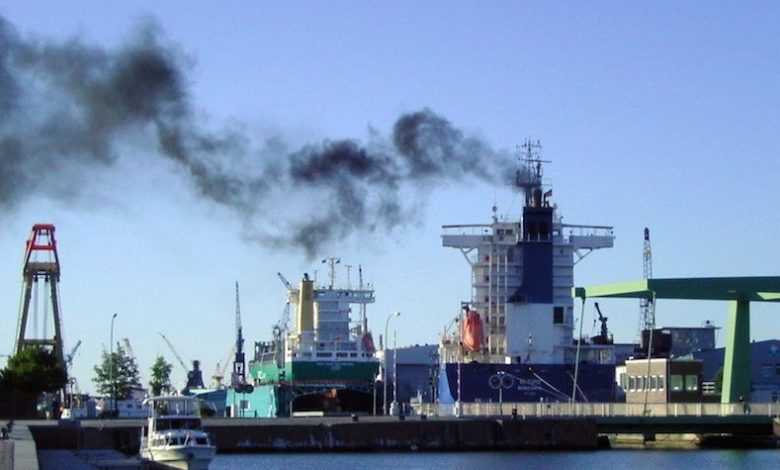Shipping gets away with it again and is left out of Paris climate agreement

The UN Climate Change Summit today released the draft text of a climate deal, but the proposed agreement fails to include emissions from shipping and international aviation.
The draft includes a demand from vulnerable nations to limit average temperature increases to no more than 1.5°C, but does not include emissions limits for the two industries, which campaigners say would both make the list of top 10 emitters, if treated as countries.
NGOs Seas At Risk and Transport & Environment (T&E) say the omission “has fatally undermined the prospects of keeping global warming below 2°C”.
The Maersk Group’s climate change expert also expressed his disappointment today. “Shipping is out of the latest draft. We are disappointed and hope it will be reintroduced before COP21 ends,” John Kornerup Bang, the Maersk Group’s head of positioning and strategic risk management in group sustainability.
The Kyoto Protocol, which became effective in 2005, asked the International Civil Aviation Organisation (ICAO) and the International Maritime Organisation (IMO) to develop measures to limit and reduce emissions from aviation and shipping, but the agencies missed their targets. Aviation accounts for about 5% of global warming, and CO2 from shipping is about 3% of the global total.
“The dropping of international aviation and shipping emissions from the draft Paris climate agreement makes keeping a temperature increase under 2 degrees close to impossible,” said Andrew Murphy, policy officer at T&E. “Those parties calling for an ambitious agreement must insist that language on international transport be reinserted.”
Climate policy research published in 2014 by Bows Larkin found that there was an 80% rise in CO2 output from aviation and shipping between 1990 and 2010, versus 40% growth in CO2 emissions from global economic activity. The research forecasts that emissions from the two industries will grow by up to 270% in 2050.
A scientific study published last month by the European Parliament echoed this, saying the two industries could be responsible for 39% of world CO2 emissions in 2050 if their emissions remain unregulated.

Its the best possible outcome – if it stays that way. if it does, the IMO must focus on getting both the NGOs and the Kyoto non Annex-1 countries into line away from the hype of Paris and into some serious, binding commitments. https://splash247.com/removing-the-obstacles-to-carbon-reduction/
Do you have any idea which governments pressed to drop shipping & aviation from the COP21 draft? Did INDC’s play a role?
The problem Neville, is that. IMO have proven themselves incapable or simply don’t want to generate any change with regard to CO2.
A long standing joke is that
“The IMO have started gathering information to consider the enactment of a set of rules for further development of the framework to evaluate the proposed documentation to do nothing ever”
Unfortunately for the planet the entire organization not just it’s head are a threat to life on earth.
Are they serious, THE single biggest area that can be changed in a short period of time with massive implications to the entire planet in the 10% range of global CO2 and they are going to leave it out !!!!!!!
ridiculous and suicidal
The task is to make solution more beneficial for US. Than US will sign a deal. Dont talk about reducing emission by military forces and Navy – it’s dead end. You can tax goods transported from China (low tech), but not high tech produced in US. There is also possibility for policies that tax foreign giants like Gazprom, maybe tax oligarchs for having big yachts, helicopters and private airplanes.